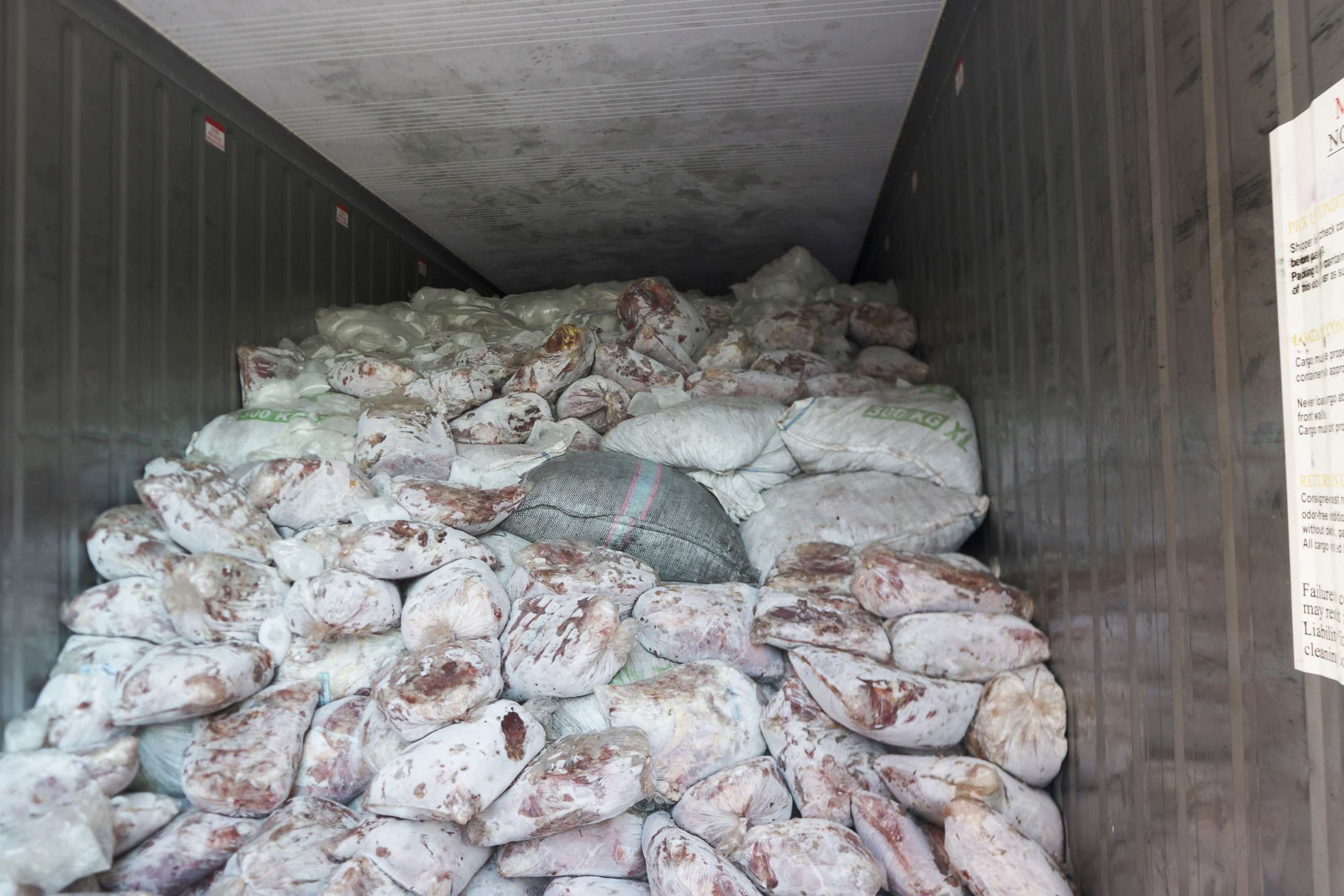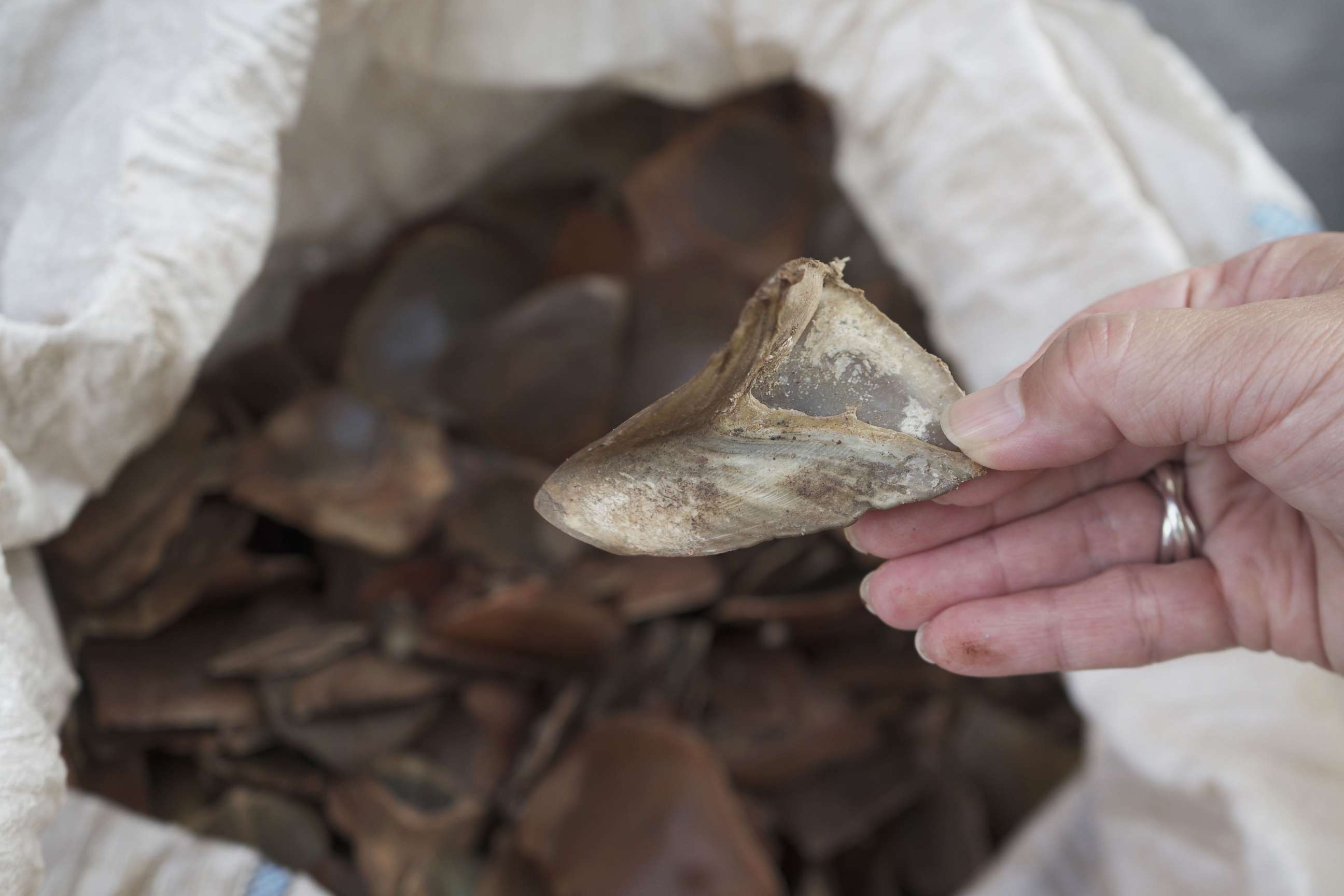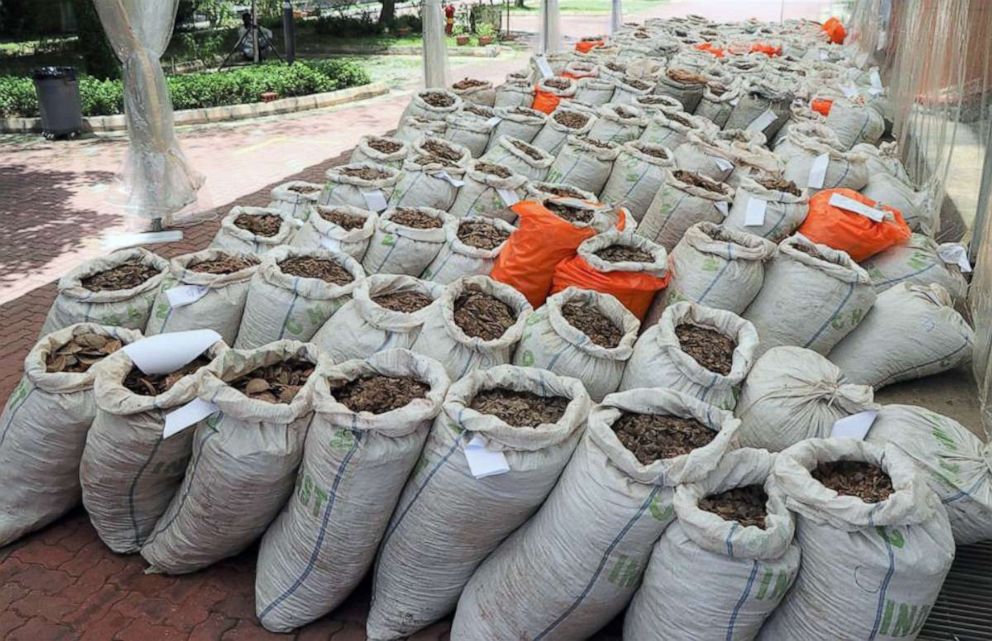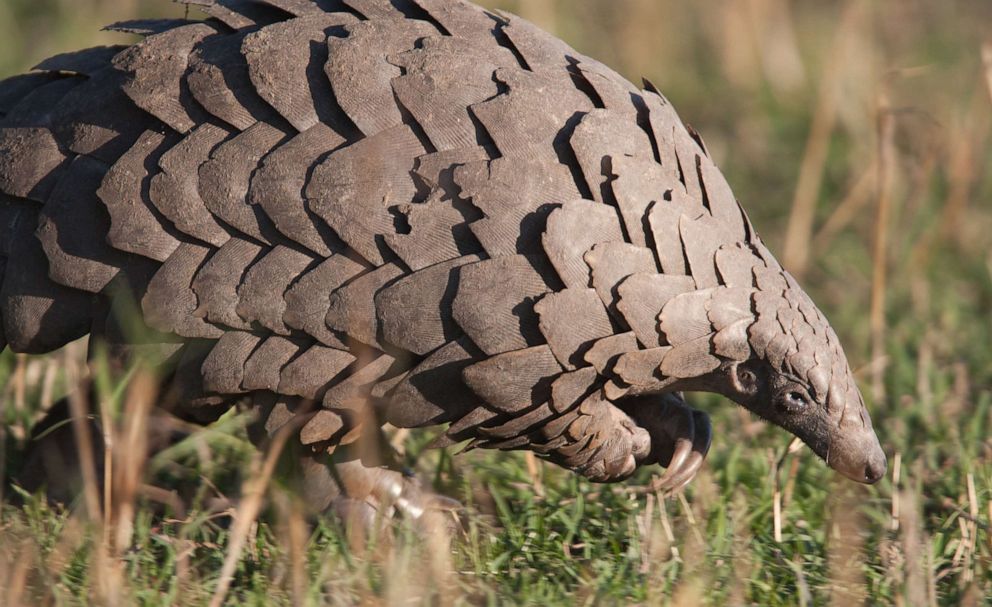$38.7 million worth of pangolin scales seized in Singapore
More than 14 tons were recovered in addition to hundreds of pounds of ivory.
LONDON -- More than 14 tons of pangolin scales were intercepted in Singapore last week in what authorities are calling one of the largest-ever such seizures in a single shipment.
Singaporean customs officials and the country's national parks board said they inspected a 40-foot container last Wednesday that came from Nigeria and was en route to Vietnam.
The shipment was labeled as "frozen beef," but inside officials found approximately 14.2 tons of pangolin scales stuffed in 230 bags, worth an estimated $38.7 million.
"This is the largest shipment of pangolin scales seized in a single haul globally in recent years," Singapore Customs and the National Parks Board said in a joint statement on April 4.


Singaporean officials also discovered about 400 pounds of cut up and carved ivory from elephant tusks within the same shipment, estimated to be worth another $88,500.
The pangolin, which resembles an anteater apart from its hard, plate-like keratin scales, is believed to be the most illegally trafficked wild mammal in the world. The distinctive yet docile and reclusive creature is being poached into extinction amid an unyielding demand in China and Vietnam for pangolin meat and scales.


Since 2014, the International Union for Conservation of Nature has classified all eight pangolin species as "threatened with extinction," with two now listed as "critically endangered."
With pangolin populations rapidly decreasing, the Convention on International Trade in Endangered Species banned international trade for all eight species in 2016.
"Pangolin meat is eaten as a luxury dish in high-end urban restaurants, and scales are used to treat a range of ailments [in traditional medicine]," pangolin researcher Dan Challender, chair of the IUCN SSC Pangolin Specialist Group, said in a statement last year. "While pangolin trafficking has historically been confined to Asia, the most worrying trend in the last decade has been the emergence of intercontinental trafficking in African pangolin scales to Asia."




